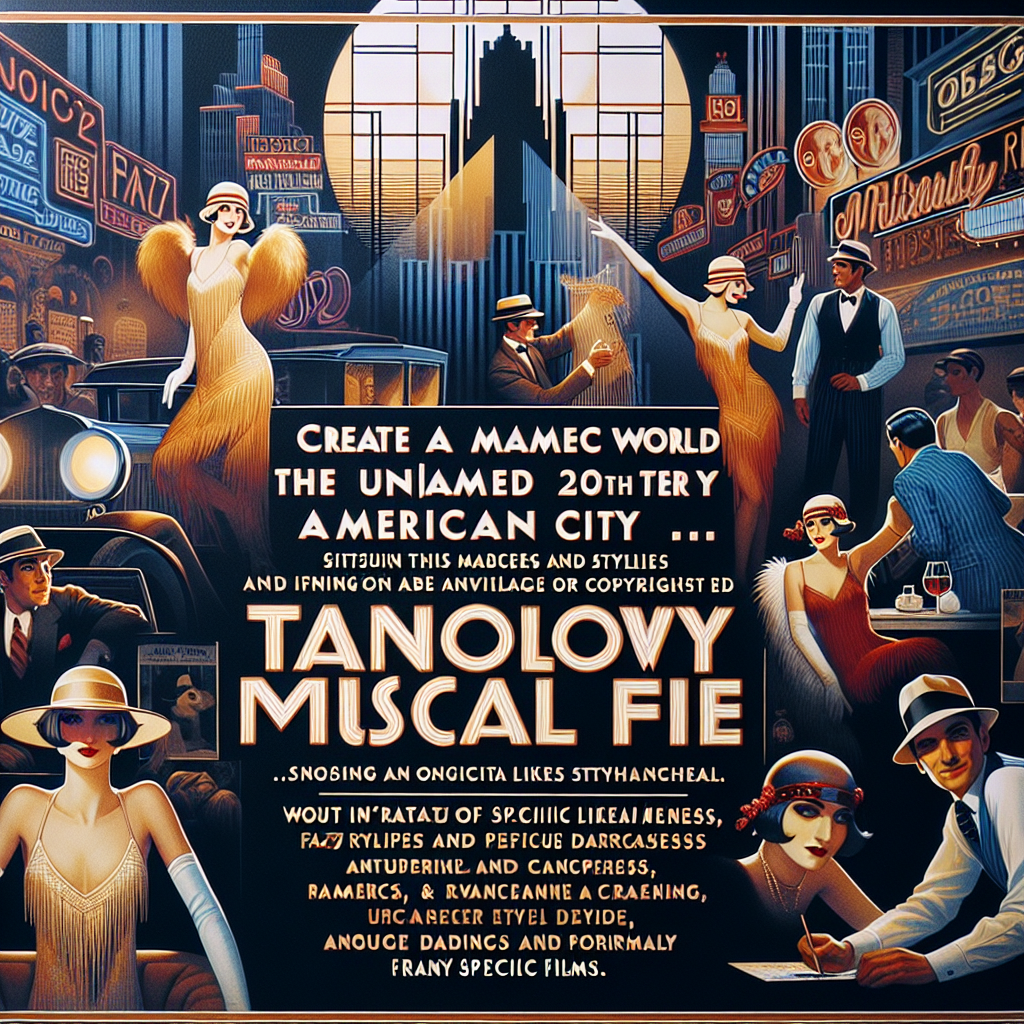Discover the Dazzling World of ‘Chicago (2002)’: Unraveling the Magic of this Timeless Musical Film
The 2002 film adaptation of the musical ‘Chicago’ is a cinematic spectacle that revitalized the musical film genre, bridging the gap between lavish Broadway productions and contemporary cinema. Directed by Rob Marshall, ‘Chicago’ not only garners critical acclaim but also secures a prestigious spot in cinematic history by winning six Academy Awards, including Best Picture. This remarkable recognition for a musical film, the first since ‘Oliver!’ in 1968, marked ‘Chicago’ as a cultural milestone, reinvigorating interest in musical storytelling within the film industry.
Significance in Cinema History
The success of ‘Chicago’ in 2002 proved to be a watershed moment for musical films, which had largely waned in popularity since the golden era of Hollywood musicals. With its inventive narrative approach and dazzling choreography, ‘Chicago’ demonstrated the potential for musicals to resonate with modern audiences. It combined the vibrant spectacle of theatre with the dynamic potential of film, showing that a musical could be both a box-office success and critically acclaimed. Its reception paved the way for subsequent musical films such as ‘Les Misérables’ (2012) and ‘The Greatest Showman’ (2017).
Main Themes and Character Arcs
At its core, ‘Chicago’ is a biting satire of fame, media manipulation, and the American justice system during the Jazz Age—a theme as relevant today as it was in the 1920s. The film’s narrative follows Roxie Hart (Renée Zellweger), a wannabe vaudevillian star who finds herself in Cook County Jail for murdering her lover. There, she meets Velma Kelly (Catherine Zeta-Jones), a fellow inmate and former nightclub sensation. Both characters are emblematic of the cutthroat pursuit of fame, each willing to compromise morals and ethics to stay in the spotlight.
Roxie’s character arc is one of transformation from a naive dreamer into a cunning social climber, her naivety stripped away by the lure of public adoration. Velma, initially painted as a villainous rival, gradually reveals layers of pragmatism and vulnerability, reflecting the harsh realities of life for women in the entertainment industry. The convergence and divergence of their paths encapsulate the film’s main theme: that in a world obsessed with celebrity, perception often trumps reality.
Cinematic Techniques and Impact
Rob Marshall’s direction brilliantly marries the theatrical with the cinematic, crafting a film that feels both intimate and grandiose. Through techniques such as the seamless integration of musical numbers within the narrative, Marshall brings a refreshing vitality to the genre. One prime example is the "Cell Block Tango," a number that juxtaposes choreography and storytelling, revealing each inmate’s story through a mix of dance and dialogue. The use of a vaudeville-inspired, diegetic approach allows musical numbers to feel like authentic extensions of the characters’ inner worlds rather than interruptions to the plot.
The cinematography by Dion Beebe employs a contrasting color palette, drawing stark visual distinctions between the drabness of the prison and the vibrant fantasy sequences. Lush reds and golds dominate the musical numbers, highlighting the dazzling yet ephemeral nature of fame. The editing by Martin Walsh, which accentuates the rhythmic pulse of the music, is critical to maintaining the film’s brisk pace, pulling the audience along in a whirlwind of spectacle and emotion.
Cultural, Social, and Historical Contexts
‘Chicago’ functions not just as entertainment but as commentary on societal issues, a reflection of its 1920s setting where media sensationalism began to shape public consciousness. The film satirizes the glorification of criminal behavior in the media—exemplified by the characters’ manipulation of the press—and holds a mirror to contemporary society’s similar tendencies.
In terms of gender roles, ‘Chicago’ delves into the limited agency of women and the societal pressures they face. Roxie and Velma, through their trials and tribulations, reveal the performative nature of femininity and success. The film underscores the transactional nature of women’s relationships with the media and the justice system, a commentary on the commodification of femininity that remains pertinent.
Legacy and Lasting Influence
The film’s influence extends beyond its box office success and accolades. It ushered in a new era of cinematic musicals, encouraging filmmakers to explore the balance between theatricality and cinematic storytelling. Moreover, it reinforced the viability of the musical film genre as an area of creative and financial potential.
Musically, the film revitalized interest in jazz and vaudeville styles, bringing an appreciation for these art forms to a new generation. The film’s soundtrack enjoyed commercial success, with audiences embracing both the classic and contemporary sensibilities it harmoniously blended.
Reflective Questions and Takeaways
As we consider the relevance of ‘Chicago’ today, we might ask: How do media narratives continue to shape our perceptions of truth and morality? What does the film’s success say about society’s enduring fascination with fame and scandal? Furthermore, in revisiting the film, viewers may reflect on how gender roles and media representation have evolved—or not—since the film’s release.
Ultimately, ‘Chicago’ remains a timeless piece of cinema not merely because of its storytelling and artistry, but because it engages audiences in a dialogue about the themes of ambition, illusion, and justice. In an era where fame is more accessible than ever, ‘Chicago’ invites us to question the lengths to which we will go to capture our fifteen minutes of glory and the price we are willing to pay for it.
Got more questions? Our personalized Movies Explorer AI assistant is here to help. Click here to start a conversation!
[Advertisement]
Looking for deeper meaning in your favorite movies? Discover how ANY movie relates to positive biblical principles with Movies and Scripture GPT from BGodInspired.com. Click here to explore insights you might not have realized! . Simply key in any movie and let it show you insights you might not have realized otherwise!
[Advertisement]

